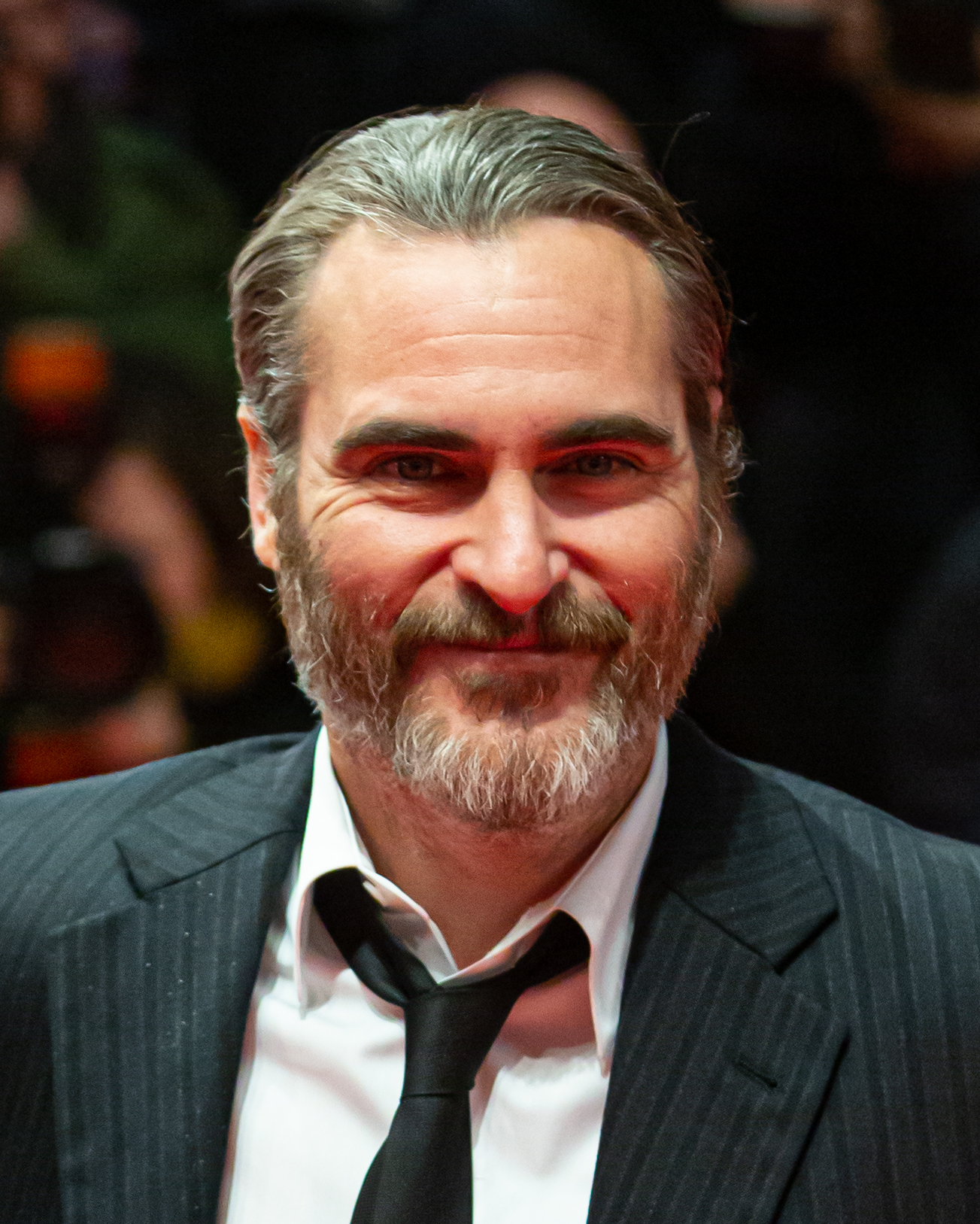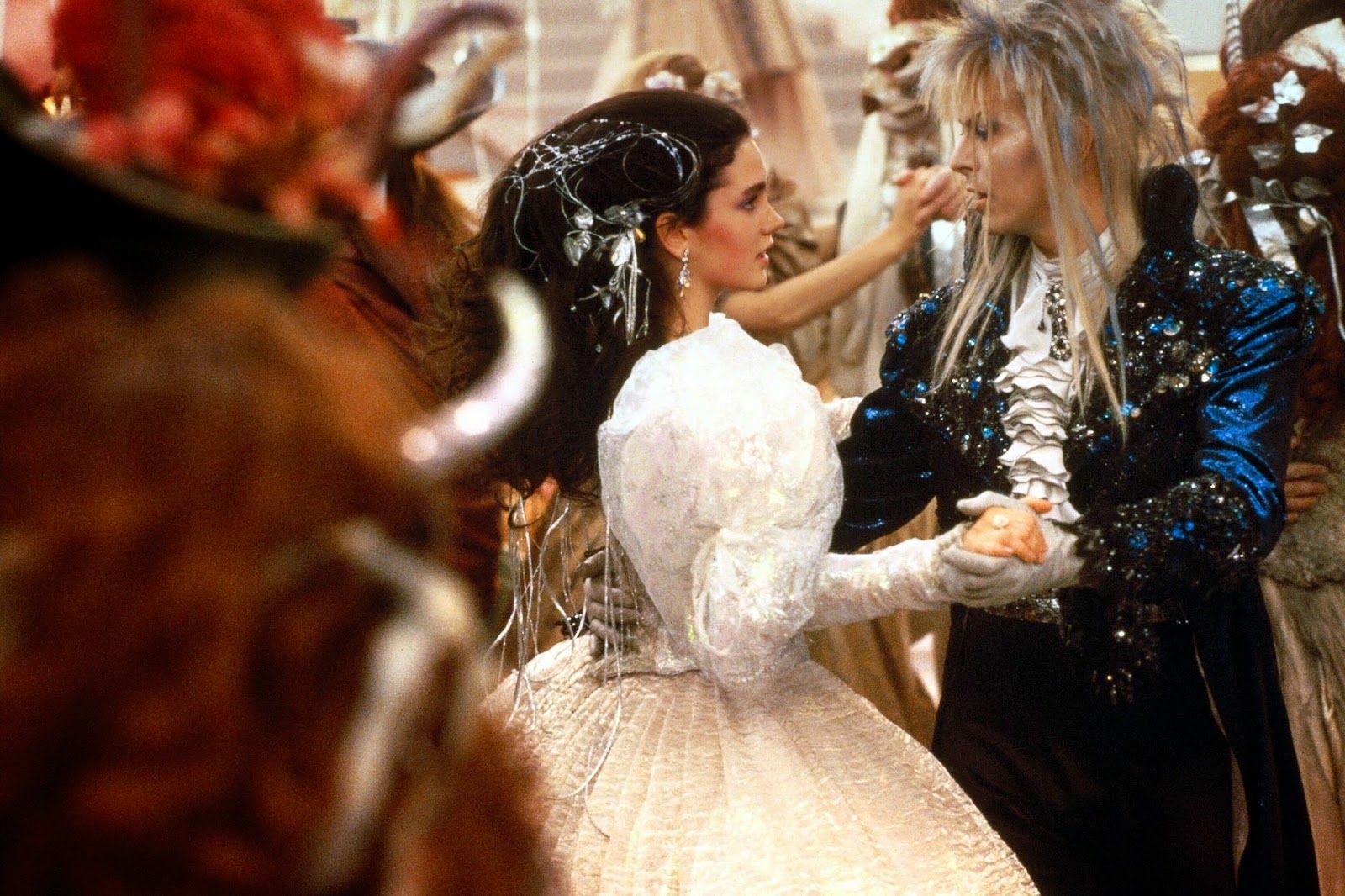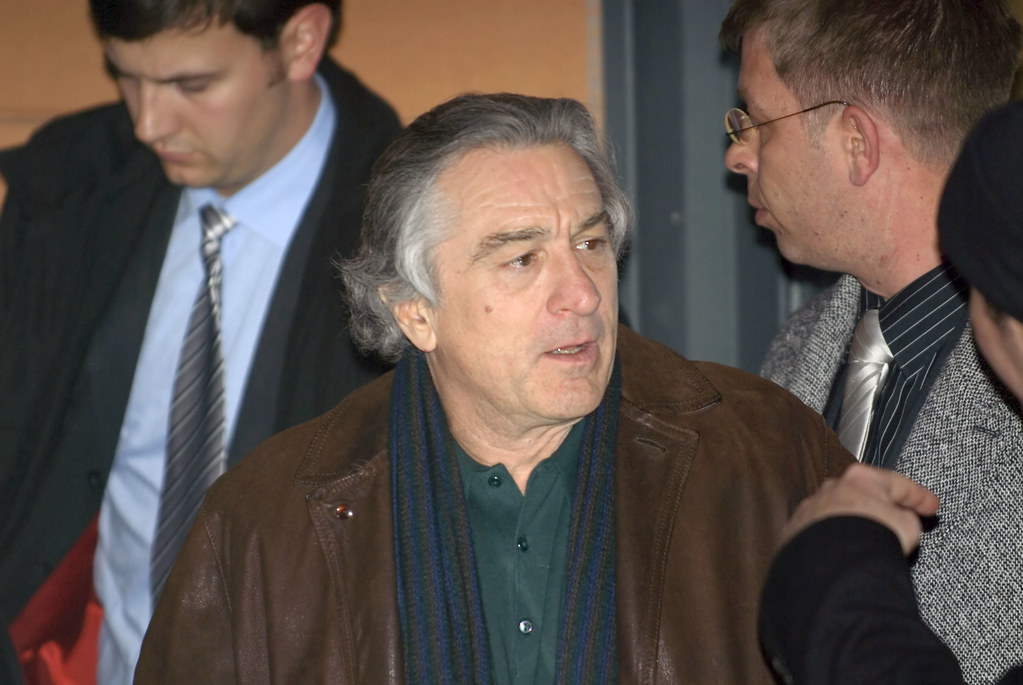
The federal courthouse in Manhattan recently became the stage for a protracted and often contentious legal drama, drawing international attention to a dispute between one of Hollywood’s most revered figures, Robert De Niro, and his former personal assistant, Graham Chase Robinson. What began as an employment relationship spanning over a decade ultimately escalated into a high-stakes legal battle, marked by dueling lawsuits, accusations of a toxic work environment, and deeply personal testimony that laid bare the complexities of power dynamics in celebrity-adjacent roles.
At the heart of this dispute lay claims of gender discrimination, retaliation, and professional misconduct, countered by allegations of theft and breach of loyalty. The trial, which unfolded over two weeks, provided a rare glimpse into the often-unseen world of personal assistance for the ultra-wealthy and the intricate, sometimes fraught, relationships that can develop. Both sides presented narratives of victimhood and perceived injustice, leaving a jury to navigate a labyrinth of conflicting accounts and emotional testimony.
This article seeks to offer an in-depth examination of the initial phases of this significant legal proceeding, exploring the foundational claims, the dramatic courtroom exchanges, and the personal impact on the individuals involved. By carefully dissecting the allegations and counter-allegations, we aim to provide a comprehensive understanding of the events that led to the jury’s eventual findings, shedding light on the intricate details that defined this compelling legal confrontation.
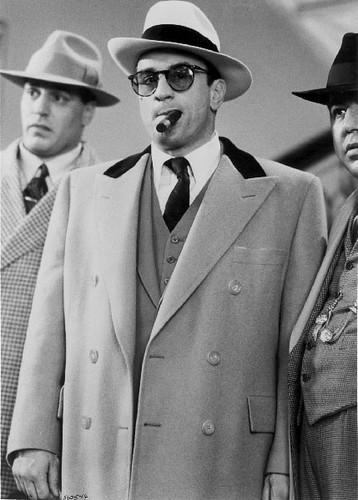
1. **The Genesis of Conflict: From Assistant to Adversary**Graham Chase Robinson joined Robert De Niro’s employ in 2008, embarking on a professional relationship that would last more than a decade. Over these eleven years, her responsibilities evolved, as did her compensation, eventually reaching an annual salary of $300,000. De Niro himself testified that he boosted her salary from less than $100,000 annually to this figure and elevated her title to vice president of production and finance at her request, although he noted that her responsibilities largely remained the same.
Robinson’s role was expansive and deeply intertwined with De Niro’s personal and professional life. She was tasked with a wide array of duties, from the mundane to the highly personal. These included decorating his Christmas tree and coordinating greeting cards for his children, highlighting the intimate and encompassing nature of her position. She was even listed as his emergency contact at one point, underscoring the deep reliance the actor placed upon her.
However, what started as a seemingly stable and well-compensated position eventually deteriorated. Robinson resigned in April 2019, citing an “emotional and mental breakdown” that left her overwhelmed and feeling like she’d “hit rock bottom.” This resignation marked not an end, but a dramatic escalation, leading directly to the initiation of the dueling lawsuits that would bring both parties to federal court.
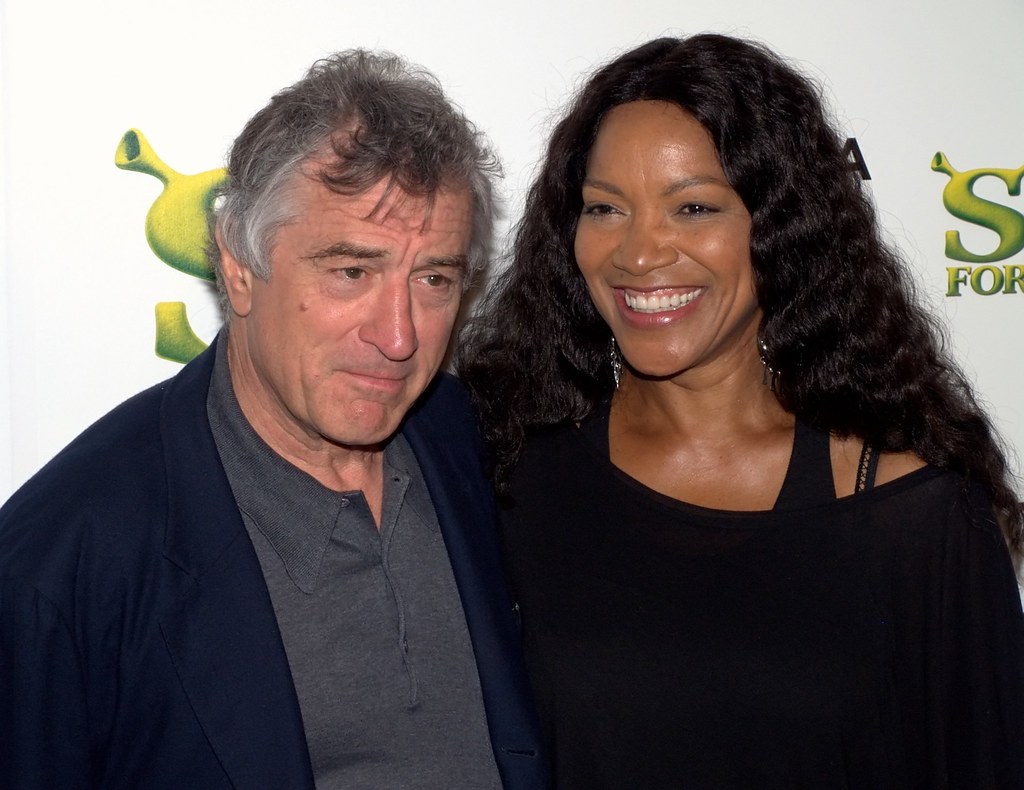
2. **The $12 Million Claim: Allegations of Gender Discrimination and Retaliation**Robinson’s primary lawsuit, filed against Robert De Niro and his company, Canal Productions, sought $12 million in damages. Her claims were comprehensive, encompassing allegations of a toxic work environment, gender discrimination, and retaliation. She asserted that De Niro treated her like an “office wife,” implying a blurring of professional boundaries and the imposition of duties traditionally associated with a domestic role rather than an executive assistant.
Among the specific allegations was the claim that De Niro had told her to wash his bedsheets. This particular detail, highlighted during the trial, became a striking example of the alleged inappropriate demands made upon her. Furthermore, Robinson asserted that she was underpaid compared to a male employee holding a similar job title, directly implicating gender as a factor in her compensation and treatment within Canal Productions.
The overall picture painted by Robinson’s legal team was one of systematic abuse and demeaning conduct. Her attorneys argued that De Niro would sometimes yell at her and use “vulgar, inappropriate, and gendered comments,” including calling her “bitch” or “brat.” These accusations formed the cornerstone of her gender discrimination claim, contending that such behavior contributed to a hostile work environment and demonstrated a pattern of disrespect directed specifically at her as a female employee.

3. **De Niro’s Counter-Offensive: Accusations of Theft and Breach of Trust**Before Robinson filed her own lawsuit, Robert De Niro’s legal team launched a pre-emptive strike, suing Robinson in 2019 for breach of loyalty and fiduciary duty. This legal maneuver introduced a parallel set of allegations, accusing Robinson of misusing company resources and betraying the trust placed in her. De Niro sought $6 million in damages, including the return of company assets.
A central point of contention in De Niro’s counter-suit revolved around airline miles. He claimed that Robinson had stolen about $85,000 in airline miles from his company’s accounts, specifying a sum of 5 million miles. This was presented as a significant breach of trust, violating what De Niro referred to as his “unwritten rules” for employees: to use common sense and always do the right thing.
However, De Niro’s testimony on this matter also contained crucial concessions. He acknowledged that he had, at one point, told Robinson she could take 2 million miles and admitted that there were no strict, written rules governing the use of these company assets. This admission complicated the narrative of outright theft, introducing a layer of ambiguity regarding the parameters of what was considered acceptable or authorized by the actor.

4. **A Toxic Work Environment: Specific Incidents and De Niro’s Demeanor**The trial saw numerous specific incidents brought to light, each contributing to Robinson’s portrayal of a toxic and demanding workplace. One notable anecdote involved De Niro asking Robinson to scratch his back. When questioned about this in court, De Niro somewhat dismissively responded, “Ok, twice? You got me!” This acknowledgment, though presented casually by the actor, was central to Robinson’s argument about the inappropriate and personal nature of the demands placed upon her.
Beyond physical requests, the emotional and verbal atmosphere of the workplace was also heavily scrutinized. Robinson testified to frequent yelling and verbal abuse. De Niro, while admitting he had berated her and “raised his voice,” vehemently denied ever using profanity or being “abusive, ever,” stating, “I was never abusive, ever.” He attempted to differentiate between anger and abuse, suggesting his outbursts were reactions to frustration rather than personal attacks.
The actor also conceded, under questioning, that he “could have” called Robinson a “brat” and admitted to getting angry when she failed to remind him of an important meeting. These admissions, despite his denials of outright abuse, painted a picture of a boss who could be demanding and quick to temper. Such interactions, frequently occurring over an extended period, formed the foundation for Robinson’s claims of emotional distress stemming from a consistently challenging and hostile work environment.
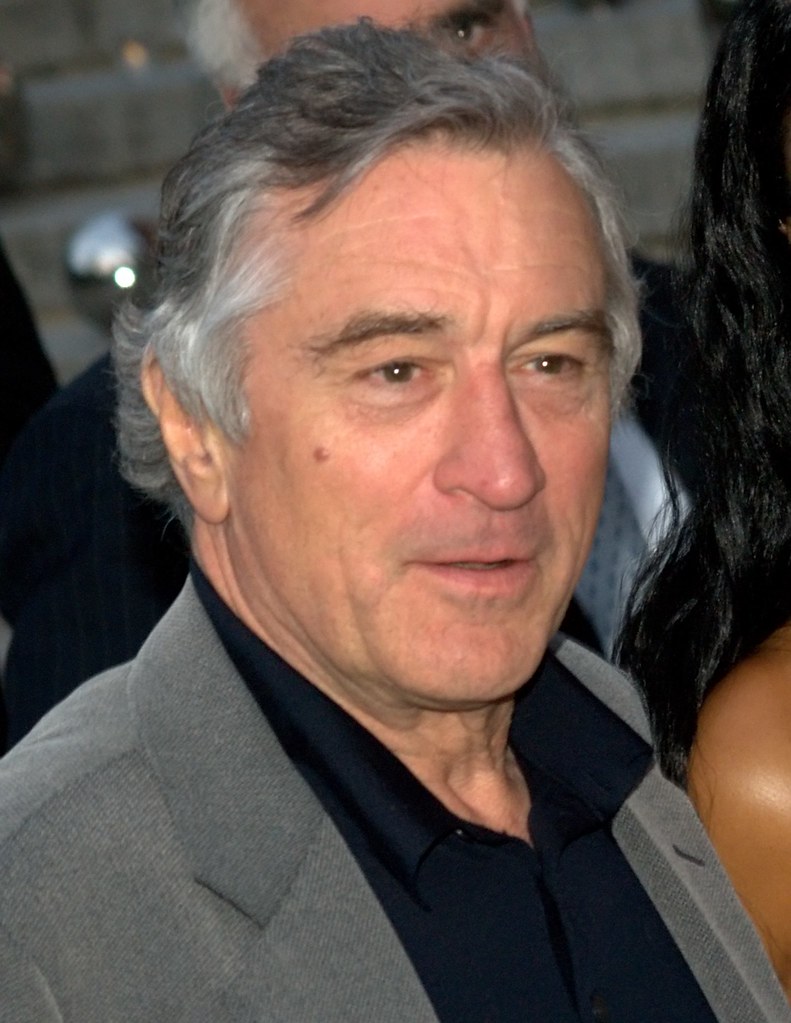
5. **The Girlfriend Factor: Tiffany Chen’s Suspicions and “Imaginary Intimacy”**A significant element introduced into the trial was the role of Robert De Niro’s girlfriend, Tiffany Chen. Robinson testified that De Niro and Chen “teamed up against her to turn a job she once loved into a nightmare.” This assertion suggested that Chen’s influence and interaction significantly exacerbated the difficulties Robinson experienced in her employment.
Correspondence between De Niro and Chen, shown to jurors, revealed the depth of Chen’s suspicions regarding Robinson’s motives and her relationship with De Niro. Chen expressed beliefs that Robinson was acting like she was De Niro’s wife and that she harbored “imaginary intimacy” with him. These emails portrayed a situation where a romantic partner perceived Robinson as a rival or a threat, potentially influencing De Niro’s own interactions and perceptions of his assistant.
De Niro, for his part, defended his girlfriend’s suspicions. He stated in court, “She felt there was something there and she may have been right,” indicating that he, to some extent, shared or validated Chen’s concerns about Robinson’s intentions or conduct. Robinson’s attorney, Andrew Macurdy, underscored this point, arguing that the primary trouble between De Niro and Robinson arose when Chen became jealous of the actor’s reliance on Robinson and their effective communication, further complicating the professional dynamic.

6. **The Witness Stand: De Niro’s Grueling Testimony and Outbursts**Robert De Niro himself spent three days on the witness stand, with two of those days dedicated to his testimony. His time in court was characterized by moments of palpable tension and emotional volatility. He often appeared “grouchy” and struggled to maintain composure under cross-examination, reflecting the intense pressure of the proceedings and the personal nature of the accusations.
Throughout his testimony, De Niro frequently dismissed Robinson’s claims as “nonsense.” In one particularly dramatic exchange, while being questioned about some of the more tabloid-style accusations, he blurted out, “This is all nonsense!” This outburst underscored his frustration and his perception that the entire legal process was an unwarranted distraction from his career and personal life.
Perhaps the most memorable moment occurred when De Niro, addressing Robinson directly in the courtroom, shouted: “Shame on you, Chase Robinson!” This public display of anger, quickly followed by a quieter apology as he glanced toward Judge Lewis J. Liman, illustrated the raw emotions at play. The judge, Lewis J. Liman, repeatedly had to explain the rules of testimony to De Niro, setting limits on what he could say, including denying his request to ask a question of Robinson’s lawyer, highlighting the actor’s difficulty in adhering to court protocols.
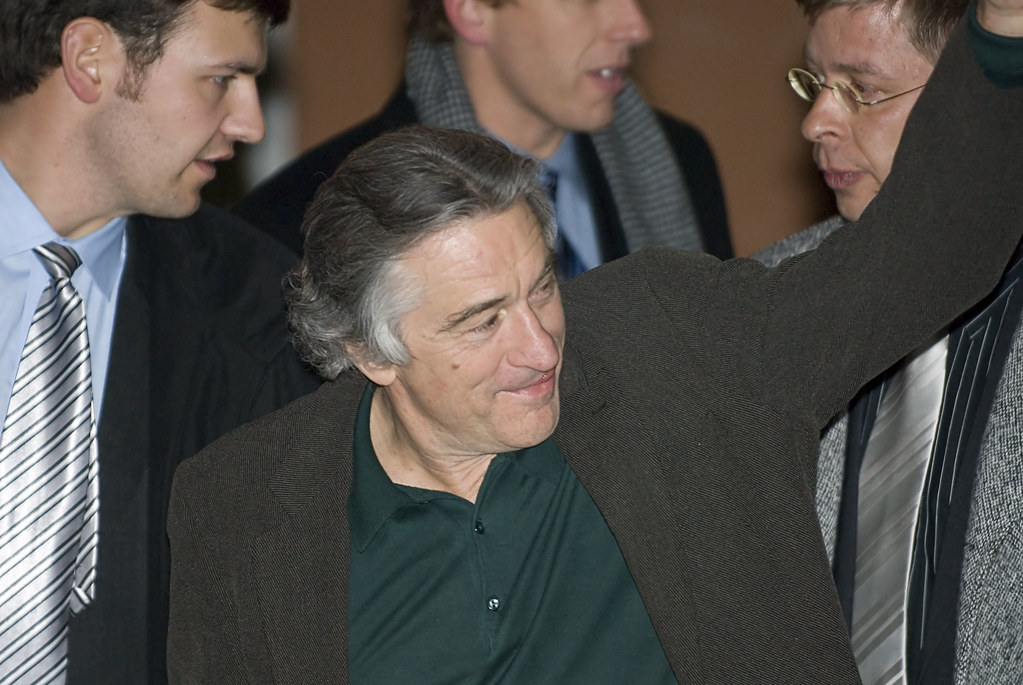
7. **The Personal Toll: Robinson’s Account of Emotional Distress and Professional Ruin**Graham Chase Robinson’s testimony focused heavily on the profound personal and professional toll she experienced as a result of her employment with Robert De Niro and the subsequent legal battle. She recounted resigning during an “emotional and mental breakdown,” describing herself as overwhelmed and having “hit rock bottom” due to the alleged toxic work environment.
Since her departure from Canal Productions in 2019, Robinson testified to suffering from severe anxiety and depression. She stated that she had not worked in four years despite applying for 638 jobs, a staggering number that underscores the difficulty she faced in re-entering the professional world. Her lawyers argued that De Niro’s refusal to provide a reference when she quit further hindered her ability to secure new employment.
Her emotional testimony painted a bleak picture of her life post-employment with De Niro. “I don’t have a social life,” she stated, adding, “I’m so humiliated and embarrassed and feel so judged. I feel so damaged in a way. … I lost my life. Lost my career. Lost my financial independence. I lost everything.” These powerful words conveyed the depth of her despair and the comprehensive impact she claimed the experience had on every facet of her existence, seeking to impress upon the jury the severe emotional distress and reputational harm she had endured.
Following a protracted two-week trial marked by intense exchanges and deeply personal revelations, the federal courthouse in Manhattan finally witnessed the resolution of the legal battle between Robert De Niro and his former assistant, Graham Chase Robinson. The jury’s verdict, delivered on a Thursday afternoon, marked a pivotal moment, offering a nuanced judgment that simultaneously affirmed certain aspects of Robinson’s claims while absolving De Niro of personal culpability. The outcome, however, left both sides claiming a form of victory, underscoring the complexities inherent in such high-profile employment disputes.

8. **The Verdict Delivered: A Nuanced Outcome**The jury, tasked with navigating the intricate web of claims and counter-claims, ultimately awarded Graham Chase Robinson over $1.2 million, finding one of Robert De Niro’s companies responsible for fostering a toxic work environment. Specifically, Canal Productions, the entity that employed Robinson for over a decade, was found liable for engaging in gender discrimination and retaliation against its former assistant. The jury stipulated that Canal Productions should make two payments of $632,142 to Robinson, totaling $1,264,284.
Crucially, the verdict differentiated between the corporate entity and the individual. While Canal Productions bore the financial brunt of the judgment, the jury explicitly found that Robert De Niro himself was not personally liable for the abuse alleged by Robinson. This distinction proved significant, allowing De Niro’s legal team to emphasize his personal absolution from any wrongdoing, even as his company faced a substantial financial penalty.
De Niro, who had spent three days at the trial, including two on the witness stand, was notably absent from the courtroom when the verdict was read aloud on Thursday afternoon, November 9, 2023. Robinson, aged 41, was present, however, and her reaction spoke volumes, reflecting the emotional weight of the protracted legal proceedings.

9. **Reactions from Legal Camps: Claims of Victory on Both Sides**Immediately following the verdict, both legal teams emerged from the courthouse expressing satisfaction with the outcome, albeit from vastly different perspectives. Robinson’s attorney, Brent Hannafan, standing alongside his client, conveyed unreserved delight, stating, “We’re thrilled with the verdict. Couldn’t be happier.” This sentiment captured the sense of vindication for Robinson after years of dispute and a challenging trial.
Conversely, De Niro’s attorney, Richard Schoenstein, characterized the verdict as “a great victory for Mr. De Niro.” He underscored the fact that De Niro had been “absolved” and was “not liable for anything that was charged against him at all.” While acknowledging the “modest award against the company,” Schoenstein highlighted that Robinson’s team had initially sought $12 million in damages, portraying the final figure as a significantly reduced liability for De Niro’s interests.
The contrasting reactions illustrate the strategic framing often employed by legal counsel after a complex jury decision. For Robinson’s team, securing a finding of gender discrimination and retaliation against De Niro’s company, along with a substantial financial award, represented a significant victory. For De Niro’s counsel, the personal absolution of the celebrity actor was paramount, effectively shielding his personal reputation from direct culpability in the eyes of the law.
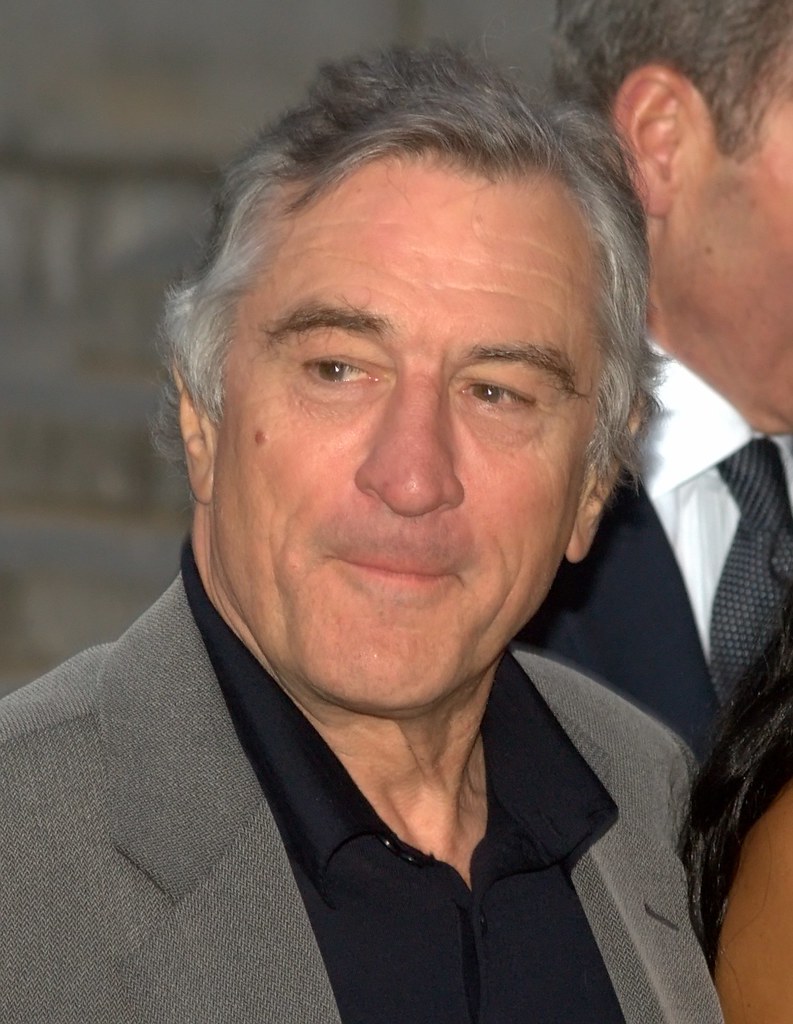
10. **Robinson’s Vindication and Public Demeanor**Graham Chase Robinson’s demeanor after the verdict provided a rare glimpse into the personal impact of the trial. She was observed smiling as the verdict was delivered in the courtroom and, once the jury had departed, shared hugs with her attorneys, Brent Hannafan and Alexandra Harwin. This quiet celebration marked the culmination of a deeply personal and public battle that had consumed a significant portion of her recent life.
Outside the courthouse, Robinson continued to present a complex emotional tableau. She smiled broadly at times, yet at other moments appeared to be on the verge of tears. Despite the barrage of media attention, she refrained from offering any direct comment, allowing her legal team to speak on her behalf. This understated reaction underscored the profound journey she had undertaken through the legal system.
The jury’s comprehensive rejection of De Niro’s counter-claims against Robinson further solidified her vindication. De Niro’s lawyers had sued Robinson for breach of loyalty and fiduciary duty, seeking $6 million in damages, including the return of 5 million airline miles. The jury flatly rejected these claims, finding her not liable, thereby clearing her name of the accusations leveled against her by her former employer.
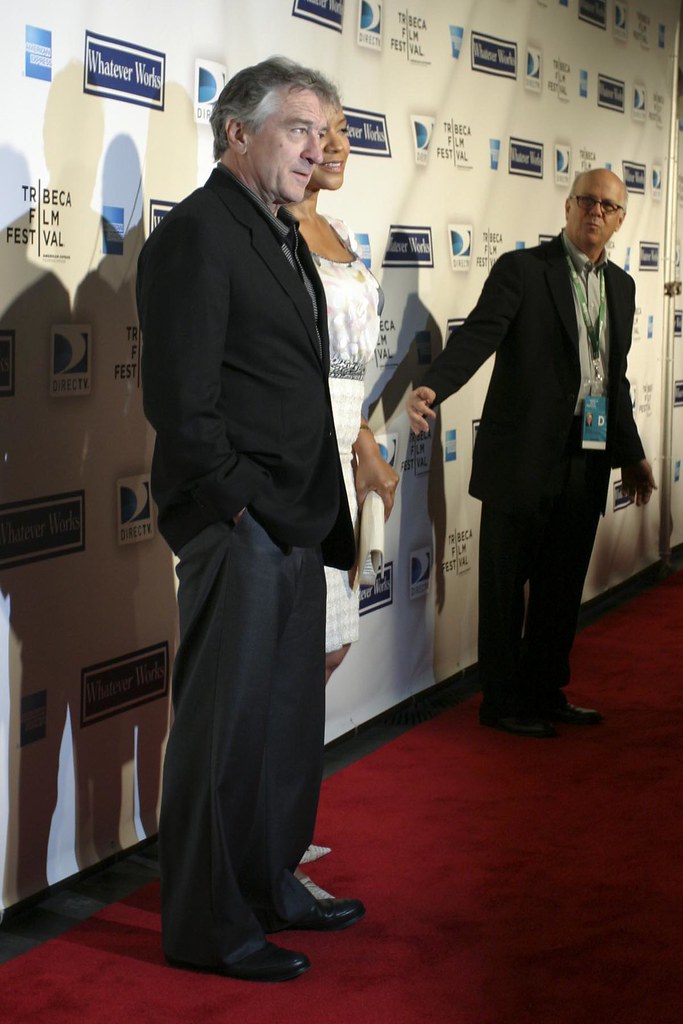
11. **The Strategic Pre-emptive Strike Revisited**One of the more intriguing strategic elements of this legal saga was Robert De Niro’s decision to file a lawsuit against Graham Chase Robinson in 2019, even before she initiated her own complaint. De Niro’s legal team pursued this pre-emptive action, accusing Robinson of breach of loyalty and fiduciary duty, with allegations ranging from misusing a company credit card for tens of thousands of dollars on food and car services to improperly transferring over $450,000 worth of airline miles to her personal account.
Robinson, in turn, testified that she perceived this initial lawsuit as an attempt by De Niro to “humiliate” her. She claimed to have uncovered evidence suggesting that the actor had filed his lawsuit to “ruin her first” because she was “threatening to sue [De Niro].” This assertion, supported by text message exchanges from another De Niro employee, highlighted a troubling undercurrent of alleged retaliation from the outset of the legal dispute.
Her attorney, Alexandra Harwin, strongly condemned this approach, stating, “It is completely illegal for employers to retaliate against employees who complain about workplace discrimination.” Harwin argued that De Niro had effectively “invent[ed] claims to ruin her reputation and humiliate her because he knew she was going to expose his behavior,” thereby positioning the initial lawsuit as a retaliatory tactic designed to silence and discredit Robinson before her own claims could surface.
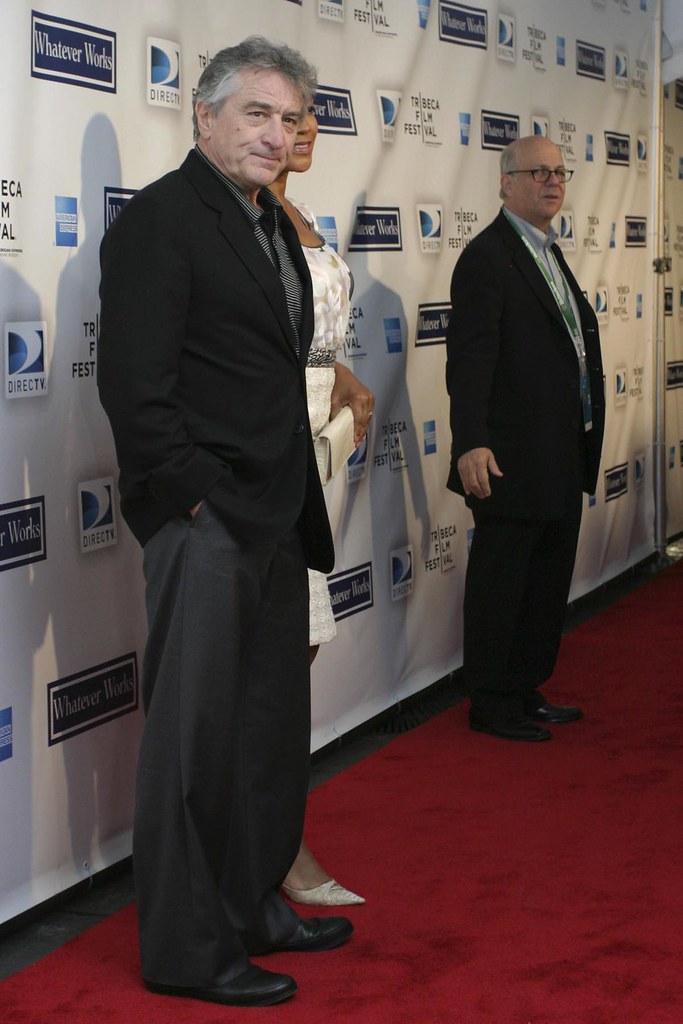
12. **Delving Deeper into De Niro’s Allegations Against Robinson**De Niro’s counter-suit against Robinson was comprehensive, alleging a pattern of misuse of company resources and a breach of trust. Beyond the widely publicized dispute over 5 million airline miles—which De Niro later conceded he had told her she could take 2 million of, and for which no strict rules existed—additional specific claims were presented to the jury. These included accusations that Robinson spent excessively on company credit cards for personal use, such as food and car services, and even watched television on company time.
De Niro, in his testimony, articulated his “unwritten rules” for employees, emphasizing the importance of common sense and always doing the right thing, suggesting Robinson had violated these principles. He maintained that when she quit, she “stole about $85,000 in airline miles from him” and “betrayed his trust.” These claims formed the basis of his pursuit of $6 million in damages from Robinson.
However, the jury’s final determination provided a clear rejection of these accusations. The panel did not find Robinson liable for any of De Niro’s claims, effectively dismissing his assertions of theft and breach of duty. This aspect of the verdict reinforced the jury’s overall finding that Robinson’s claims held greater legal merit, while De Niro’s counter-allegations lacked sufficient evidence to secure a judgment in his favor.
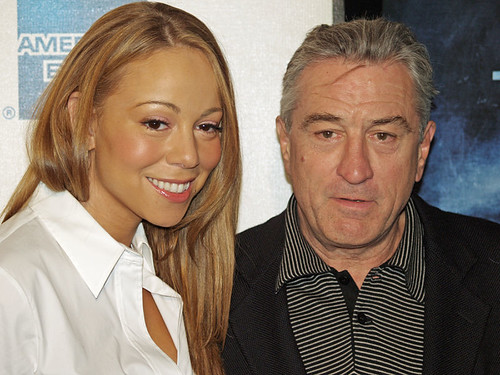
13. **Broader Implications: Workplace Conduct and Power Dynamics**The verdict in the De Niro-Robinson lawsuit extends far beyond the immediate parties, carrying significant implications for workplace conduct, particularly within the often opaque and highly personalized environment surrounding high-profile figures. The finding of gender discrimination and retaliation against Canal Productions sends a clear message regarding employer responsibility, even when the principal individual—the celebrity employer—is not personally held liable. It underscores that companies, regardless of their size or the fame of their founders, must maintain equitable and respectful working conditions.
This case highlights the unique challenges faced by personal assistants to the ultra-wealthy, where professional boundaries can easily blur into personal ones. Robinson’s claims of being treated like an “office wife,” asked to perform personal tasks like washing bedsheets, and enduring gendered comments, exemplify the potential for abuse of power in such relationships. The jury’s decision serves as a cautionary tale, suggesting that informal rules and a reliance on “common sense” may not suffice as legal defenses against claims of harassment and discrimination.
Furthermore, the trial’s intense public scrutiny, including De Niro’s emotional outbursts and Robinson’s detailed testimony of emotional distress and professional ruin, brought these sensitive workplace issues into the mainstream discourse. It encourages a re-evaluation of how power dynamics operate in celebrity employment and could embolden other individuals in similar positions to come forward with their own grievances, fostering greater accountability for employers across various industries.
Read more about: Beyond the Stage: The Unraveling of a Pop Star’s Persona Amidst Explosive Lawsuits and Documentary Disputes

14. **Potential for Further Legal Actions and Appeals**Despite the jury’s verdict, the legal journey may not be entirely concluded. De Niro’s attorney, Richard Schoenstein, indicated the possibility of post-verdict motions to the judge, which could aim to reduce the awarded amount. While he expressed uncertainty about whether such motions would be pursued, the option remains a standard procedural avenue for challenging jury decisions.
Similarly, the question of an appeal lingers. Schoenstein did not confirm whether De Niro’s legal team would pursue an appeal, stating he was “not sure there would be any.” An appeal would prolong the legal battle, potentially revisiting the extensive testimony and evidence presented during the two-week trial. Such a decision would weigh the costs and benefits of further litigation against the current outcome.
Beyond this specific case, the legal implications extend to potential future actions concerning workplace conduct. The verdict could influence how similar employment disputes are perceived and litigated, particularly those involving high-profile individuals and their corporate entities. It reinforces the importance of clear, documented employment policies and robust mechanisms for addressing employee grievances, aiming to prevent the escalation of such conflicts to the federal courthouse.
Read more about: Beyond the Benevolence: Unpacking the 14 Worst Financial Scandals to Rock Celebrity-Linked Charities
The protracted legal battle between Robert De Niro and Graham Chase Robinson has drawn back the curtain on the often-private world of celebrity employment, revealing the intricate and sometimes fraught dynamics at play. While the jury’s verdict offered a resolution, holding Canal Productions accountable for gender discrimination and retaliation, and largely vindicating Robinson of counter-claims, it also ignited broader conversations about workplace conduct, power imbalances, and the critical need for equitable treatment. The ramifications of this $1.2 million judgment will likely resonate for years to come, shaping not only future employment practices in similar high-stakes environments but also influencing the discourse surrounding accountability and justice in the modern workplace. It stands as a testament to the persistent pursuit of fairness, even in the shadow of Hollywood’s brightest stars.

